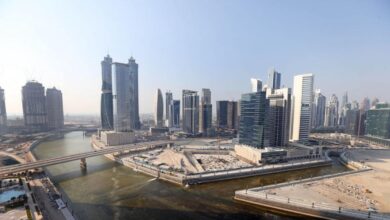
- The rental market in the UAE, particularly in Dubai, has witnessed significant growth and rebound in recent years. The impact of the pandemic, along with various economic factors, has reshaped the market dynamics, leading to both opportunities and challenges for landlords and tenants. Landlords have been able to benefit from the increased demand and rising rents, while tenants face difficulties in negotiating rent increases and finding affordable housing.
Key Insights for Landlords and Tenants in UAE
As of June 2023, the rental market in the United Arab Emirates (UAE) continues to be an area of interest for both landlords and tenants. This article aims to provide key insights into the current rental market outlook in the UAE, with a particular focus on Dubai. By examining various sources and reports, including the UAE Market Review and Forecast 2021 by Knight Frank [1], industry analyses, and news articles, we will explore the trends, challenges, and opportunities that shape the rental landscape for landlords and tenants in the UAE.
Dubai Rental Market Resurgence
The Dubai rental market has been a subject of significant interest and scrutiny in recent years. With the impact of the pandemic and various economic factors, both landlords and tenants in the UAE have been closely monitoring the market outlook and seeking key insights to navigate the evolving landscape. In this investigative article, we will delve into the rental market outlook for landlords and tenants in the UAE, with a particular focus on Dubai. We will draw upon the information provided from various sources to provide a comprehensive analysis.
According to a report by Knight Frank, the real estate market in the UAE, including Abu Dhabi and Dubai, has shown signs of recovery despite the pandemic’s impact [1]. Residential sales prices have declined, but demand remains resilient. In Dubai’s prime residential market, there have been price decreases, while the secondary market has experienced an increase in sales. Residential rents have softened in both cities. Additionally, the report highlights challenges faced by the retail sector, reduced footfall, increased e-commerce, and declines in the hospitality market. On the other hand, the industrial market has remained strong, with falling rental rates and expectations of continued space consolidation.
The Dubai rental market, in particular, has witnessed a significant rebound from the impact of the pandemic. In 2021, rental prices surged, allowing landlords to charge higher rents and replace low-paying tenants with higher-paying ones. Dubai’s rental market recorded a record increase of 18.9% in 2021, with villa rents rising by 26.8% annually and apartment rents improving by 14.3% compared to 2020 lows [2].
Experts are divided on the future trajectory of rental prices, with some suggesting further strengthening. Factors such as Expo 2020, population growth, and increased job security are expected to sustain high rents in the long term. However, it’s worth noting that landlords must adhere to the Real Estate Regulatory Agency’s rules, which limit rental increases, and eviction notices must be served through formal channels, providing reasons and a 12-month notice period.
While the rental market in Dubai is thriving, tenants are facing difficult decisions due to significant rent increases in popular areas of the emirate. After experiencing price declines during the pandemic, some tenants have encountered rent hikes of up to 20%.
The Real Estate Regulatory Authority (RERA) allows landlords to increase rent by a maximum of 20% per year, even if the property is currently rented below market value. Tenants have limited negotiating power, and their only option if they disagree with the rent increase is to vacate the property. However, RERA’s rental calculator determines applicable rent increases based on various factors such as location, property type, current rent, and number of rooms. The market is highly competitive, with properties being rented out quickly [4].
In 2022, Dubai’s rental market continued to experience strong double-digit growth, with average apartment rents increasing by 27.6% and average villa rents surging by 25.4%. This growth was accompanied by a record high total transaction volume, indicating high demand from investors and end users. Popular areas such as Business Bay, Downtown Dubai, and Al Barsha remain preferred choices for tenants. It’s worth noting that the rate of growth is expected to slow down, bringing stability to the market [3].
As the UAE continues its recovery and moves forward, it is essential for both landlords and tenants to stay informed about the rental market trends and regulations. While the market has experienced a surge in rents, it is expected to stabilize in the coming years. Tenants should be aware of their rights, explore options in different locations, and consider negotiating with landlords when facing rent increases. Landlords should remain mindful of the regulatory framework and the need to strike a balance between rental income and tenant satisfaction. Overall, a thorough understanding of the rental market outlook will empower both landlords and tenants to make informed decisions and navigate the rental landscape in the UAE effectively.





